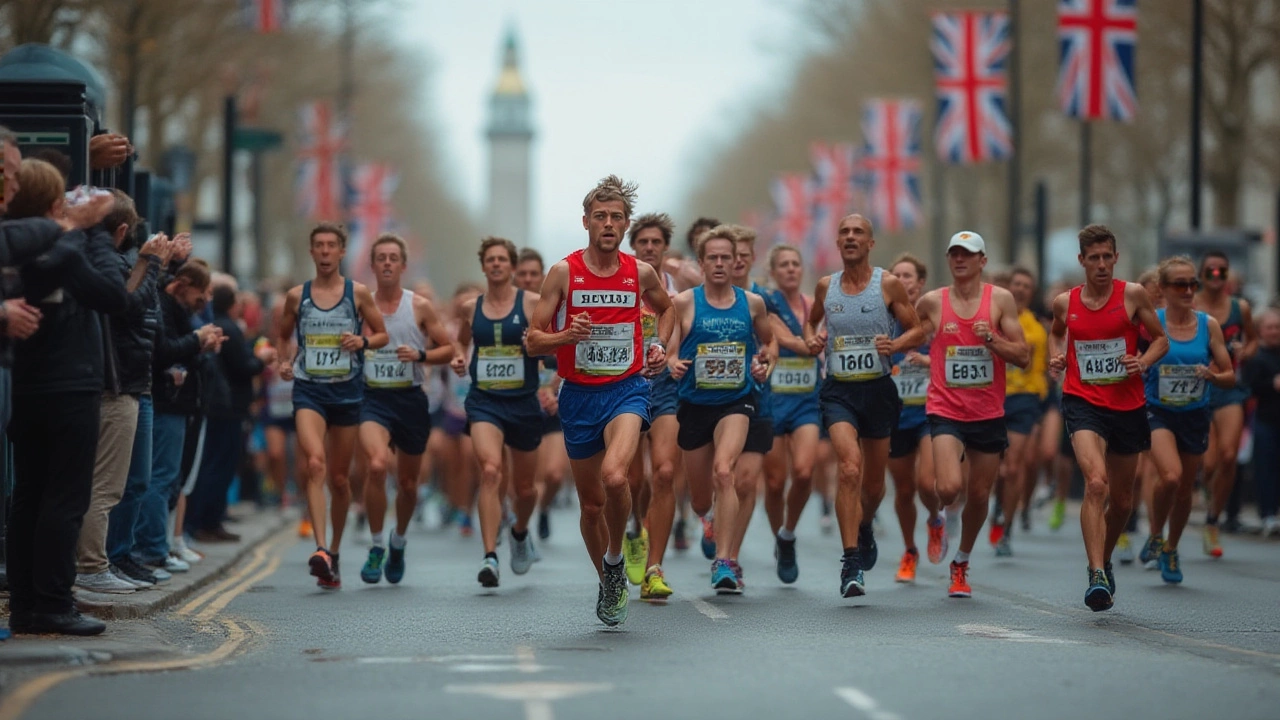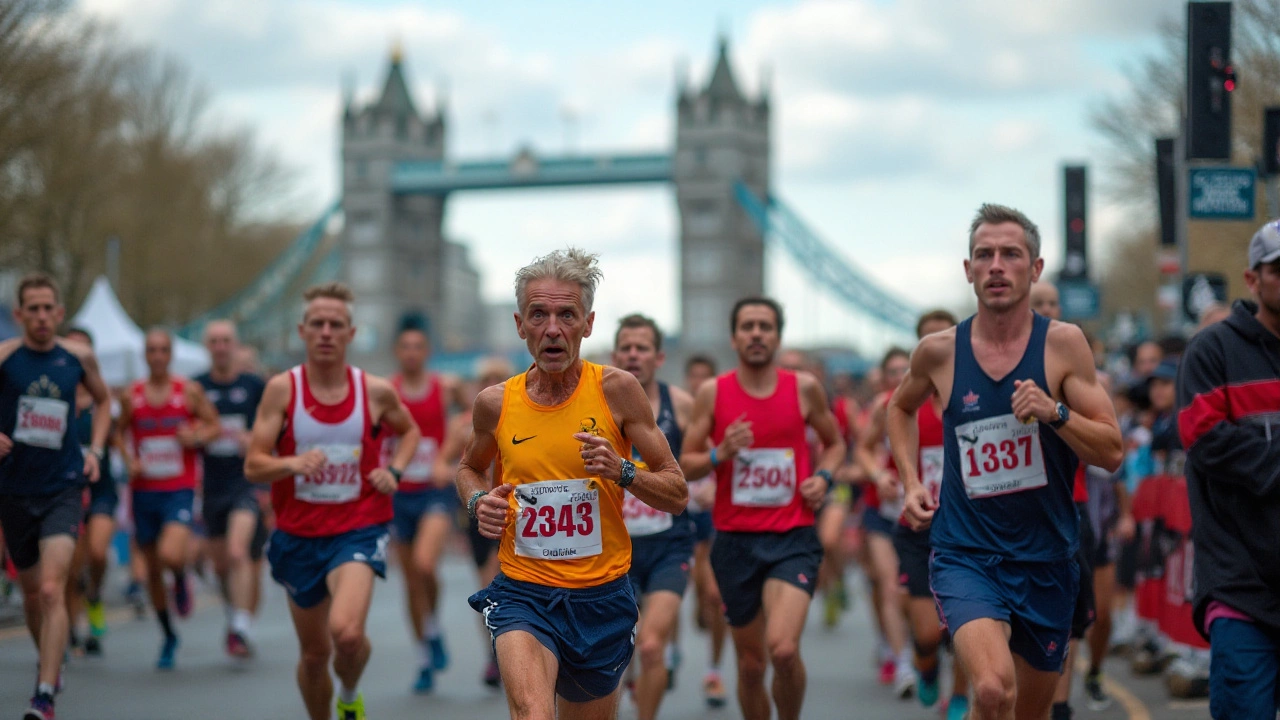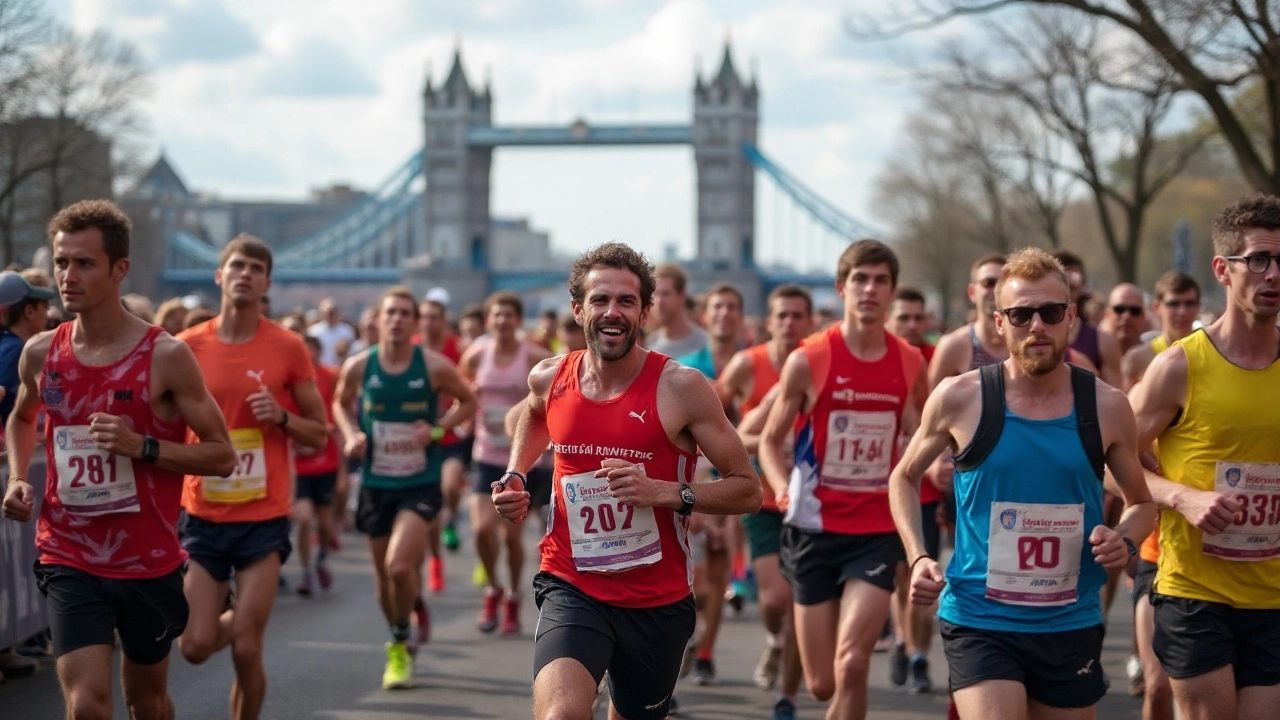Marathon – Tips, Times & Gear
Thinking about tackling a marathon? You’re not alone. Thousands of UK runners lace up every year, and the community is buzzing with advice on everything from pacing to the best shoes. This page gathers the most useful info so you can start strong, stay safe, and finish proud.
How Fast Is a 4‑Hour Marathon?
Four hours is a common benchmark for many runners. It translates to about 9 minutes and 9 seconds per mile, or 5 minutes and 41 seconds per kilometre. If you can hold that pace for the full 26.2 miles, you’ll cross the line in under four hours. Most seasoned hobbyists achieve it with a solid 12‑week plan that mixes long runs, tempo work, and a few speed intervals.
Key to hitting four hours is consistency. Aim for three quality runs per week: a long run that builds endurance, a tempo run that teaches you to stay at marathon pace, and a shorter speed session to improve leg turnover. Don’t forget recovery – a good night’s sleep and easy days keep injuries at bay.
Choosing the Right Marathon Shoes
Your shoes can make or break a marathon. A pair that fits well, offers enough cushioning, and matches your gait will keep you comfortable for the whole distance. In our recent Hoka review we found the brand’s plush midsole great for long‑run fatigue, while still feeling responsive.
When picking shoes, try them on late in the day – your feet swell after a day’s activity, so you’ll get a realistic fit. Run a few minutes on the treadmill or a quick outdoor loop to feel the support. Look for a shoe with a drop that suits your stride; most marathoners go for 8‑10 mm.
Don’t forget to break the shoes in before race day. Log at least 50‑80 kilometres in them so the cushioning settles and you know they won’t cause blisters. A fresh pair on race morning feels great, but a half‑new pair that’s already molded to your foot is the sweet spot.
Aside from shoes, a few extra gear tips can help you stay on pace. A GPS watch lets you monitor split times, and a lightweight hydration pack can prevent the dreaded “wall” around mile 20. Dress in layers that you can peel off – early morning temperatures can be chilly, but you’ll warm up quickly.
If you’re curious about marathon extremes, check out the story of the slowest marathon ever recorded. It’s not a record you want to beat, but it shows how unpredictable race day can be – from weather delays to medical emergencies. The takeaway? Prepare for the unexpected and have a backup plan.
Training isn’t just about mileage. Strength work, especially core and hip stability, reduces the risk of overuse injuries. Simple bodyweight moves like planks, glute bridges, and single‑leg squats are easy to add after your runs and pay off during the long miles.
Nutrition plays a huge role too. Practice your race‑day fueling in training: take in 30‑60 g of carbs per hour through gels, sports drinks, or easy‑to‑chew bites. Personal tolerance varies, so experiment early to avoid stomach trouble on race day.
Finally, keep the mindset positive. Marathon runners often talk about the “runner’s high” that kicks in after the toughest stretch. Visualise crossing the finish line, hear the cheers, and use that mental picture to power through the miles that feel hardest.
Whether you’re chasing a four‑hour goal, looking for the best marathon shoes, or just want fun facts about the event, this hub has you covered. Grab your shoes, set a plan, and enjoy the journey – the marathon is more than a race; it’s a celebration of what your body can do.
Is It OK to Stop During a Marathon? Marathon Running Expert Tips, Myths, and Reality

Curious if you can stop during a marathon? This deep dive covers the myths, real stories, expert quotes, and practical tips you need to know for marathon running.
Is 35 Too Old to Run a Marathon? Real Talk and Training Tips

Thinking about running a marathon at 35 or older? Find out if age really matters when it comes to tackling 26.2 miles, and get honest advice about training, injury risks, and motivation. This article breaks down myths, shares helpful tips, and shows why plenty of runners actually hit their stride after 35. Get practical ideas and a confidence boost, whether you're an experienced runner or a total newbie.
Average Marathon Completion Times and Training Tips

Running a marathon is a significant achievement and understanding the average time it takes can help set realistic goals. These times vary widely based on factors such as a runner's experience, fitness level, and training regime. This article explores typical marathon completion times, provides training insights, and offers tips for first-time marathon runners. Whether you're preparing for your first marathon or looking to improve your personal record, knowing what to expect can guide your preparation.
Average Marathon Completion Time: Insights and Tips

Running a marathon is a challenging accomplishment that varies greatly in completion time among different participants. Understanding the average time it takes to finish a marathon can help runners set realistic goals and improve their strategies. This article explores the factors affecting marathon times, provides insights into common time ranges, and offers tips to help you achieve your personal best. We also delve into the role of different strategies and training plans in shaping marathon outcomes.
